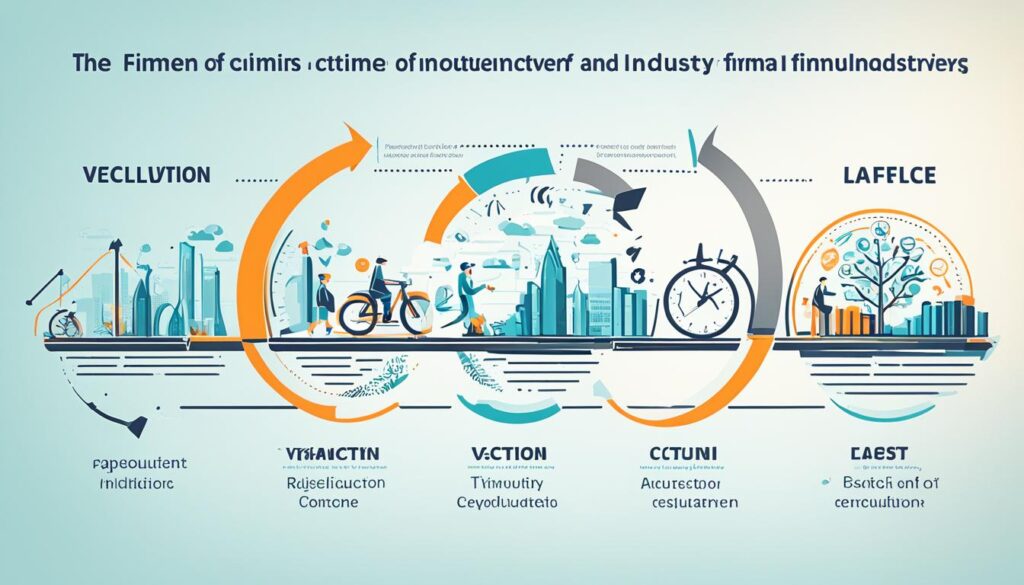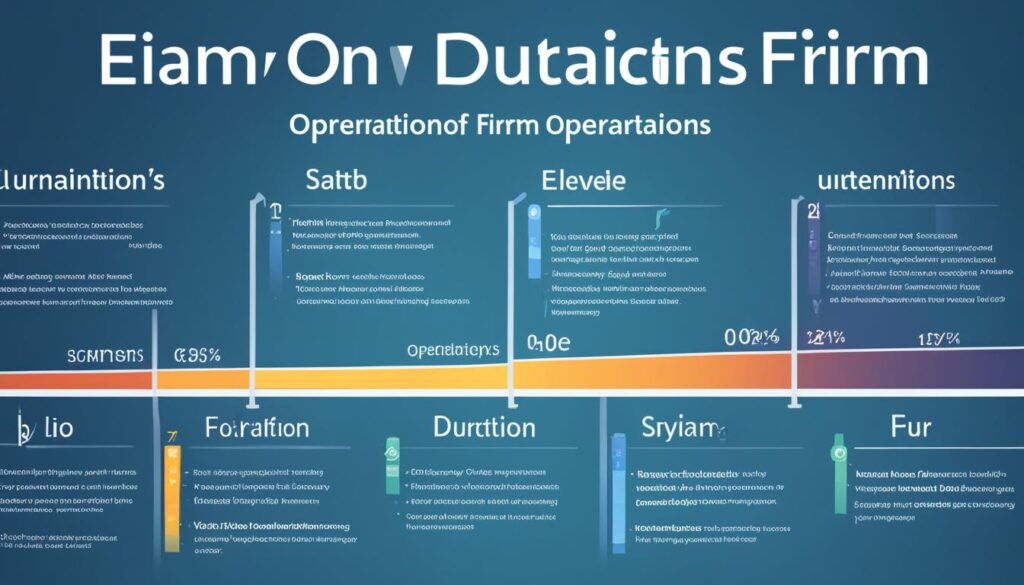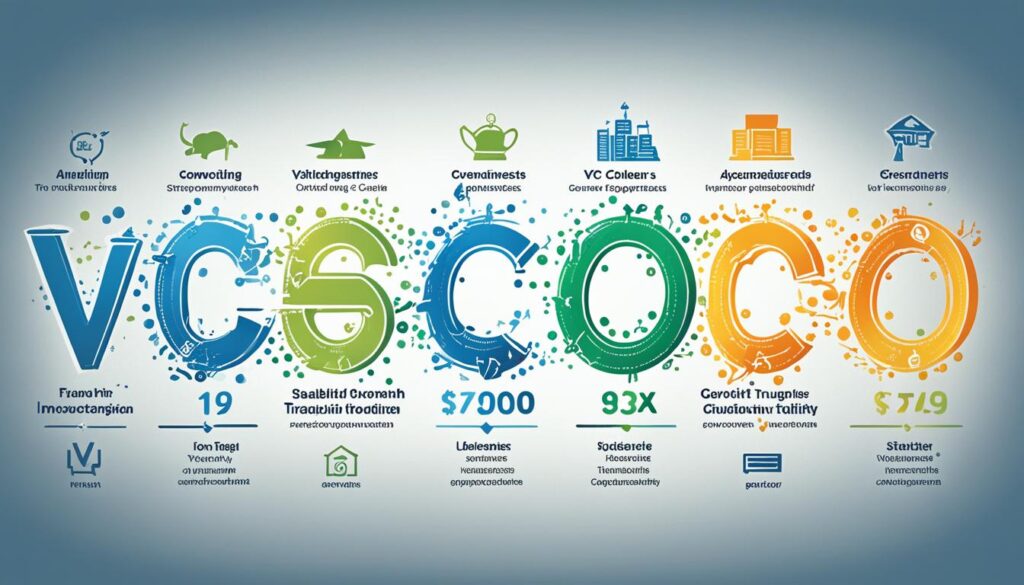The popular mythology surrounding the U.S. venture-capital industry derives from a previous era when venture capitalists nurtured the computer industry in its infancy. Today, venture capitalists are more like conservative bankers than the risk-takers of days past. They have carved out a specialized niche in the capital markets, filling a void that other institutions cannot serve. Venture capitalists must earn a consistently superior return on investments in inherently risky businesses. The myth is that they do so by investing in good ideas and good plans, but in reality, they invest in good industries that are more competitively forgiving than the market as a whole.
Key Takeaways
- The lifespan of a venture capital firm can vary, but is typically structured around a 10-year fund duration.
- VC firms generate revenue through management fees, carried interest, and dividends or capital gains.
- A firm’s longevity is influenced by factors such as fund performance, reputation, and the ability to raise successive funds.
- Successful VC firms often employ specialized strategies focused on specific industries, stages, or geographic regions.
- Competition for high-quality deals and the ongoing management of portfolio companies pose challenges for VC firms.
But how long do these venture capital firms typically last? What are the key factors that influence their longevity in the industry? Let’s dive in and explore the secrets behind the lifespan of VC firms.
Understanding Venture Capital Firms
Venture capital firms (VCs) play a crucial role in the entrepreneurial ecosystem, providing financial resources, strategic guidance, and valuable connections to high-potential startups. These money management organizations raise funds from a variety of sources, including family offices, institutional investors, and high net worth individuals, and then invest this collective capital into promising early-stage companies.
What are Venture Capital Firms (VCs)?
Venture capital firms are specialized investment firms that focus on providing funding and support to innovative startups with the potential for significant growth and market disruption. VC firms typically make investments according to a particular thesis or strategy, such as supporting startups in a specific industry, stage of development, or geographic region.
The Role of Venture Capitalists
Venture capitalists play a multifaceted role in fostering the growth and success of the startups they invest in. Beyond providing the necessary capital, they often serve as strategic advisors, leveraging their industry expertise and extensive networks to help their portfolio companies navigate challenges, identify new opportunities, and scale their operations. The influx of VC cash, combined with the additional resources, advice, and connections VCs can provide, often serves to help startups grow rapidly and dominate their target markets.

The Lifespan of a Venture Capital Fund
Venture capital funds are typically structured to have a defined lifespan, providing a clear timeline for investors and the management team. Understanding the lifespan of venture capital funds, including the VC fund structure and duration, as well as the investment period and exit timelines, is crucial for navigating the dynamics of the venture capital industry.
Fund Structure and Duration
VC funds are typically structured to be close-ended, with a duration of 10 years. This means that all proceeds from the fund’s investments must be returned to the shareholders, which include the general partners (GPs) and limited partners (LPs), within that timeframe. The management company (ManCo) team will actively invest during the “investment period,” usually in the first 3 to 5 years of the fund’s life, and then allow the portfolio companies to mature for the remaining 5 to 7 years before exiting their positions.
Investment Period and Exit Timelines
The structured timeline of a VC fund has important implications for the companies it invests in. Most seed-stage startups will require 10 years or more before achieving a successful exit, either through an acquisition or initial public offering (IPO). The “bad” companies in the portfolio, those that fail to meet expectations, will typically go bankrupt and be written off before the end of the 10-year fund duration.

Revenue Streams for Venture Capital Firms
Venture capital (VC) firms generate revenue through various sources, including management fees, carried interest and profits, and dividends and capital gains. Understanding these revenue streams is crucial for analyzing the financial health and sustainability of VC firms.
Management Fees
VC firms typically charge an annual management fee, which is a percentage of the total fund size. The industry-standard “2-and-20” model involves a 2% management fee and a 20% carried interest on any profits generated. Top-tier VC funds may employ a “3-and-30” model, charging higher fees for their expertise and connections to high-growth startups.
Carried Interest and Profits
The carried interest, or “carry,” is the share of investment profits that VC firms receive as compensation for their fund management and investment expertise. This performance-based compensation aligns the interests of the VC firm with those of its investors, as the VC only profits when the fund generates strong returns. Generating consistent, market-beating profits for VC investors is crucial for the firm’s long-term success and ability to raise future funds.
Dividends and Capital Gains
When VC-backed startups experience successful exits, either through mergers, acquisitions, or initial public offerings (IPOs), the VC firm can generate dividends and capital gains for its investors. These distributions of investment proceeds are a key component of the overall returns that VC firms aim to deliver to their limited partners (LPs).

By understanding these various VC firm revenue streams, investors and analysts can better evaluate the financial stability and growth potential of venture capital firms operating in the dynamic startup ecosystem.
Factors Influencing VC Firm Longevity
The longevity of a venture capital (VC) firm is shaped by several critical factors, chief among them being the firm’s fund performance and returns, its reputation and track record, and its ability to raise successive funds over time.
Fund Performance and Returns
Top-performing VC funds that consistently deliver outsized returns to their investors are far more likely to maintain a strong presence in the industry and attract new capital from limited partners. Funds with a proven track record of identifying and supporting successful startups that go on to become market leaders are particularly well-positioned to enjoy longevity in the VC space.
Reputation and Track Record
A VC firm’s reputation and its historical track record play a vital role in determining its longevity. Firms that have developed a strong reputation for their expertise in specific industries or investment theses, as well as their ability to support and scale high-potential startups, often find it easier to raise new funds and continue operating over the long term.
Ability to Raise Successive Funds
The capacity to raise follow-on funds is a critical factor in a VC firm’s longevity. Firms that can consistently raise new funds and continue deploying capital into promising startups are better positioned to maintain their presence and generate returns for investors over successive investment cycles. This ability to raise successive funds is closely tied to a firm’s overall performance and reputation in the market.

How long do VC firms last?
The lifespan of a venture capital (VC) firm can vary, but is typically structured around a 10-year fund duration. VC firms are typically organized as close-ended funds, meaning that all proceeds must be returned to the shareholders (general partners and limited partners) within that 10-year timeframe.
During the “investment period” of the first 3 to 5 years, the VC firm’s management company (ManCo) will make investments in startups. The portfolio companies are then given 5 to 7 years to mature before the VC firm exits its positions through sales or public offerings. This 10-year timeframe can occasionally be extended by 1 year, up to 2 or 3 times, with the authorization of a committee representing all shareholders.
However, the actual lifespan of a VC firm can vary considerably, depending on factors such as the firm’s fund performance and returns, its reputation and track record, and its ability to raise successive funds over time. Top-performing VC firms with a proven history of delivering outsized returns are more likely to maintain longevity in the industry.
| Metric | Average/Typical Duration |
|---|---|
| Lifespan of Venture Capital Funds | 10 years, with possible 1-year extensions |
| Investment Period for VC Firms | 3 to 5 years |
| Maturation Period for Portfolio Companies | 5 to 7 years |
While the typical duration of venture capital firms is structured around a 10-year fund lifecycle, the average lifespan of VC firms can vary more broadly based on their individual performance, reputation, and ability to raise new funds over time.

The Evolution of Venture Capital
The popular mythology surrounding the U.S. venture-capital industry derives from a previous era when venture capitalists were legendary for their risk-taking and hands-on operating experience. However, today’s venture capitalists are more like conservative bankers than the risk-takers of days past. They have carved out a specialized niche in the capital markets, filling a void that other institutions cannot serve. Venture capitalists must earn a consistently superior return on investments in inherently risky businesses, but they do so by investing in good industries that are more competitively forgiving than the market as a whole, rather than just investing in good ideas and good plans.
From Risk-Takers to Conservative Investors
The evolution of the venture capital industry has seen a shift from the risk-taking approach of the past to a more conservative investment strategy. While venture capitalists were once known for their pioneering spirit and willingness to back innovative ideas, they have since become more akin to traditional financial institutions, focusing on minimizing risk and maximizing returns. This transformation has been driven by the need to consistently deliver superior performance to investors, as venture capital has become a specialized and competitive niche within the broader capital markets.
Successful VC Firm Strategies
Successful VC firms often employ strategies for successful VC firms that focus on specific industries, stages, or geographic regions, allowing them to develop deep expertise and identify the most promising opportunities. These firms also typically have a strong track record of delivering outsized returns to investors, which helps them maintain a strong reputation and continue raising new funds. Factors like fund performance, the ability to raise successive funds, and the firm’s reputation and expertise all contribute to the key factors for VC firm longevity in the industry.
One key strategy employed by successful VC firms is a focus on specific industries or sectors, enabling them to stay ahead of the curve and identify emerging trends and opportunities. For example, firms like Andreessen Horowitz have built a reputation for their deep understanding of the technology industry, allowing them to identify and support some of the most promising startups in that space.
Additionally, successful VC firms often specialize in certain stages of the startup lifecycle, from pre-seed to late-stage funding. This stage-specific focus allows them to develop the necessary expertise and networks to effectively support their portfolio companies at each critical juncture. Firms like Y Combinator and Sequoia Capital have built impressive track records by consistently identifying and nurturing promising startups at the earliest stages of their development.
Ultimately, the strategies for successful VC firms and the key factors for VC firm longevity are intertwined. Firms that can consistently deliver strong returns, maintain a robust reputation, and effectively raise successive funds are more likely to thrive and remain influential players in the venture capital ecosystem over the long term.

Challenges Faced by Venture Capital Firms
Venture capital firms face a number of significant challenges as they navigate the dynamic startup ecosystem. One of the primary hurdles is the intense competition for high-quality deals. VC firms must continually source and evaluate a large number of potential investments to find the most promising startups, competing against not only other VC firms but also alternative capital providers like angel investors and private equity firms. This competitive landscape can make it increasingly difficult for VC firms to secure access to the best deal flow.
In addition to the challenge of sourcing deals, VC firms also face the ongoing task of managing their portfolio companies. As VC firms typically invest in a diverse range of startups, providing strategic guidance and support to these portfolio companies can be a significant time commitment. Balancing the needs of multiple portfolio companies, while also identifying and nurturing the highest-potential investments, can stretch the resources of even the most seasoned VC teams.
VC firms must also navigate issues such as misalignment of interests between themselves and entrepreneurs, limited exit options, and a lack of transparency surrounding investment strategies and portfolio performance. Addressing these challenges requires a multifaceted approach that combines strategic positioning, strong relationships, and a commitment to value-added support for portfolio companies.

| Challenge | Impact | Solutions |
|---|---|---|
| Competition for top deals | Limited deal flow and access to the best startups | Building strong networks, developing specialized expertise, and providing value-added resources to startups |
| Managing portfolio companies | Significant time commitment and coordination required to support multiple startups | Streamlining processes, leveraging technology, and fostering open communication with portfolio companies |
| Misalignment of interests | Potential conflicts between VC firms and entrepreneurs focused on different goals | Developing clear terms and exit strategies, promoting transparency, and aligning incentives |
Conclusion
The longevity of venture capital firms can vary, but is typically structured around a 10-year fund duration. These firms generate revenue through management fees, carried interest, and dividends or capital gains, with their longevity influenced by factors such as fund performance, reputation, and the ability to raise successive funds. While the venture capital industry has evolved from a focus on risk-taking to a more conservative, specialized investment approach, successful VC firms continue to play a crucial role in supporting the growth of high-potential startups and delivering strong returns to investors.
Navigating the challenges of intense competition for quality deals and managing their portfolio companies remains crucial for VC firms seeking to maintain a lasting presence in the industry. By developing deep expertise in specific industries, stages, or geographic regions, and consistently delivering outsized returns, top-performing VC firms are able to build a strong reputation and continue raising new funds, ultimately contributing to their longevity in the venture capital ecosystem.
In conclusion, the key factors for VC firm longevity include their fund performance and returns, reputation and track record, and the ability to raise successive funds. As the venture capital industry continues to evolve, the lifespan of VC firms will depend on their ability to adapt and thrive in this dynamic environment, while effectively supporting the growth of innovative startups and generating superior returns for their investors.
